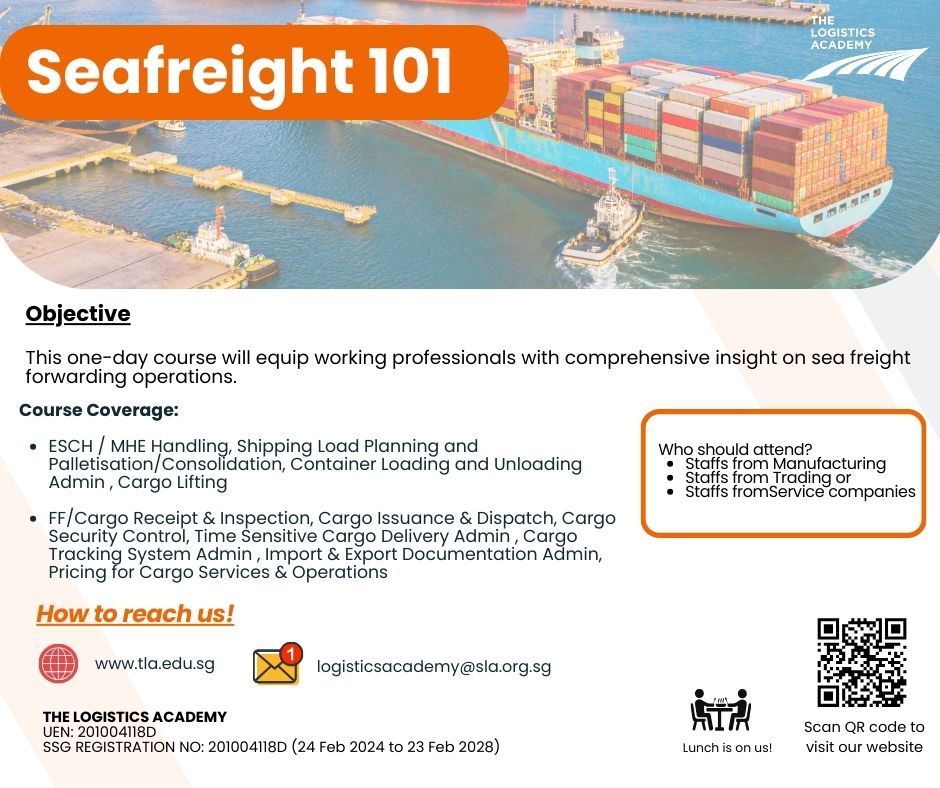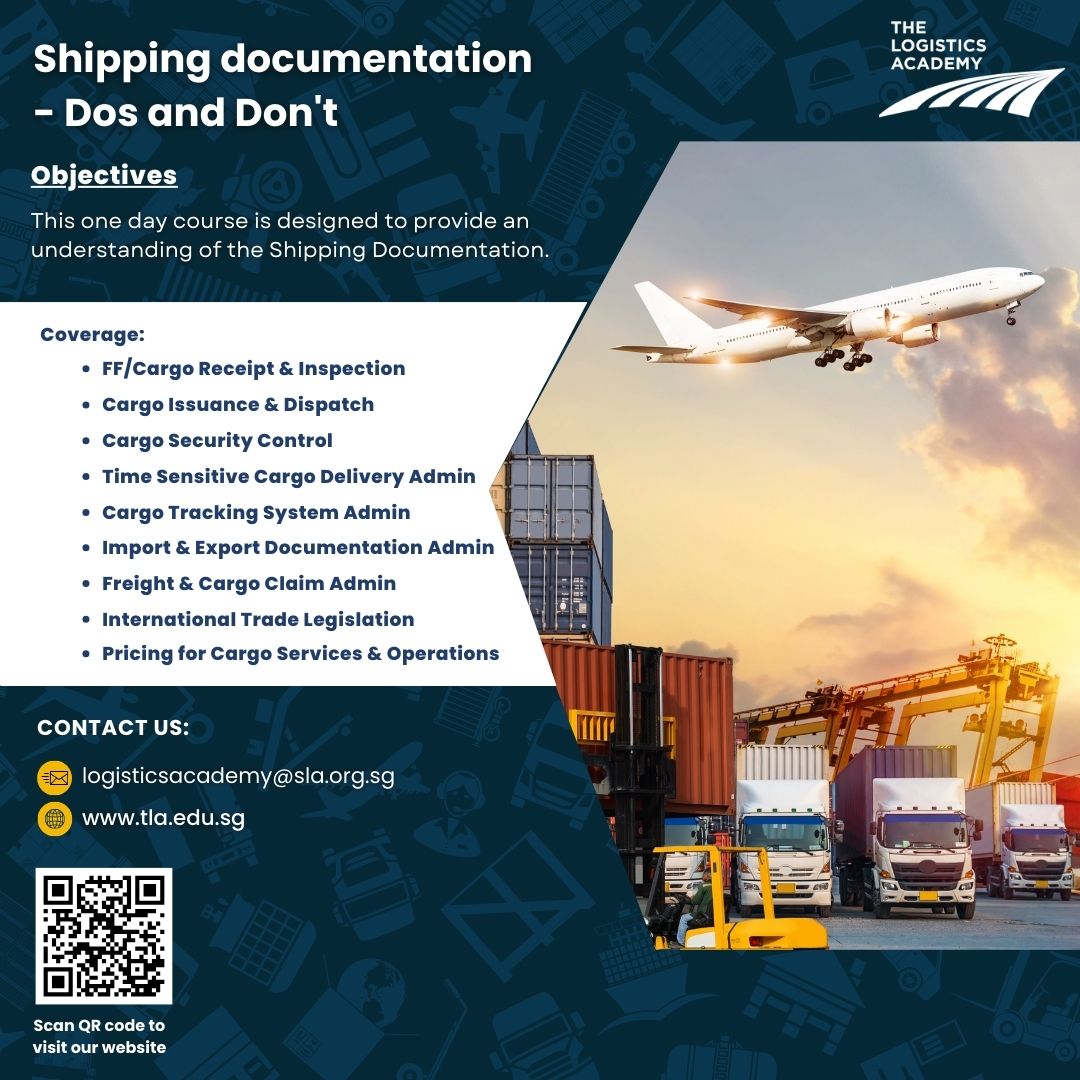Seafreight 101

- 04 Nov 2025, Intake : 40
- Next year’s Training Schedule — click here at the end of Dec / next Jan for the dates.
Good for gaining industry knowledge and insider news.
Tan Way Ern Reena, Logistics Executive, D.C.C. Singapore Branch

This is a very good course for us who dont have logistics background. We can understand more rationale behind the issue that we’re facing and this should benefit us in easily know how to solve the issue.
Chernkwan Maneepura (Cherry), Marine Container Ops Hub, E.L. – Thailand
Objectives
This one-day course will equip working professionals with comprehensive insight on sea freight forwarding operations. The course aims to provide good understanding on procedures for handling export and import shipments, documents involved in shipping, ship types, the concept of containerization, shipping consortium, global alliances, network sharing systems as well as importance of job costing, KPIs and SOPs in sea freight forwarding operations to improve efficiency and profitability. It also provides an update on the latest developments in the global maritime industry.
Designed For
The programme is designed for sea freight industry personnel including staff of logistics, manufacturing, trading and service companies to learn more about the current, practical and hands-on field applications and for practioners in the airfreight logistics industry as well as those who are interested in pursuing a career in the logistics industry.
Coverage
The course is customized towards the Logistics Skills Framework Technical Skills and Competencies (TSCs) namely :
ESCH / MHE Handling, Shipping Load Planning and Palletisation/Consolidation, Container Loading and Unloading Admin , Cargo Lifting
FF/Cargo Receipt & Inspection, Cargo Issuance & Dispatch, Cargo Security Control, Time Sensitive Cargo Delivery Admin , Cargo Tracking System Admin , Import & Export Documentation Admin, Pricing for Cargo Services & Operations
Topics Covered
- Why shipping is still the most common mode of international transport and an update of the latest development in the sea transport sector?
- Why transport geography is important in relation to major ports of call, major shipping routes, time zones and international dateline?
- Understand the basic characteristics of ships and the different types of ships used to carry different types of cargo and the notion of ship’s speed
- Understand the definition of a carrier
- Understand the procedures for handling export and import shipments
- Understand the documents used in shipping cargo
- Appreciate the role of ports and the equipment used in the port
- Understand the concept of containerization, types of containers, uses, specifications with regard to weight limitations and volumetric capacity
- Understand the concept of container leasing and functions of inland container depot
- Understand the conference systems, shipping consortia, conference terms, freight tariffs
- Understand the importance of job costing in sea freight operations.
- Principles of Material Handling and cargo operations in the port, warehouse and ship.
Fees
| SLA Member | Non-Member | Self-Sponsored | |
|---|---|---|---|
| Course Fee | $398 | $498 | $498 |
| GST | $35.82 | $44.82 | $44.82 |
| Application Fee (includes GST) |
$32.70 | $32.70 | $32.70 |
| Total Fee (payable to TLA) |
$466.52 | $575.52 | $575.52 |
Payment
Payment will only be required after the course is confirmed.
(The status of the course would usually be advised one (1) month before the course start date.)
Payment mode (retail payments facilities are not available) :
Overseas – Telegraphic transfer
Local – Bank transfer or Corporate PayNow
Duration
1 day: 9am to 6 pm
Lecturer

Mr Tan Tee Hwa has been involved in training of logisticians for the Singapore Logistics Association (SLA) under the Diploma in International Freight Management and the Advanced Diploma in International Transport Management over the last 30 years.
He was a member of Curriculum Committee, Institute of Technical Education on Integrated Logistics Management Course, and a Lecturer in Institute of Technical Education in the Integrated Logistics Management Programme.
Certification
A Certificate of Attendance will be awarded upon successful completion with 75% attendance.
